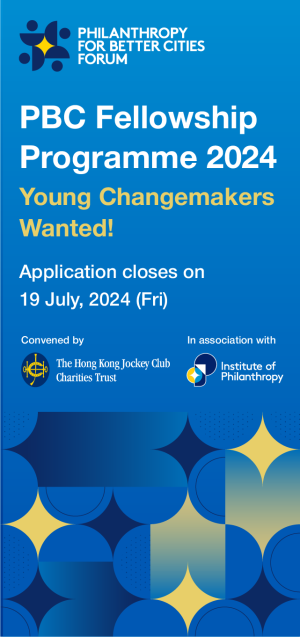For philanthropy to realize the change it seeks—from climate to livelihoods and from health to economic empowerment—it must address the systems that lock all people into gendered norms, narratives, and policies that stand in the way of change. It must invest in systems that support and celebrate all kinds of dads.
We, the authors, have been shaped profoundly by fathers in our lives. One of us, a Black man raised in the US, had a dad who role modeled a harmful version of manhood and fatherhood. The other, a woman now living in the US but raised in India, was born to a mom whose father arranged her marriage at the age of 17, believing he was doing the right thing.
We have come to understand our father and grandfather as functions of their respective systems. We also understand that the men who are products of their systems are both impacted by it negatively and are often complicit (intentionally or not) in upholding those systems and reinforcing hardwired rules and biases that are extremely harmful to women, girls, and gender-expansive people. In fact, rigid, gendered definitions of fatherhood often do not reflect the reality of parents who identify as gender-expansive or queer.
Over the last year, The Bridgespan Group has convened with the Skoll Foundation and others to learn together how to more effectively consider gender in philanthropy. This group helped inform Bridgespan’s recent report, Illuminating Impact: Why gender matters for funders in any issue area, which explores how taking a gender lens can accelerate the impact of philanthropic dollars in any area of giving.
For funders, recognizing the role gender is playing in your issue area — for women, girls, gender-expansive people as well as for boys and men— can be the first step to unlocking impact.
Take caregiving. A recent State of the World’s Fathers report, by Equimundo and MenCare, points to the structural and social barriers fathers face as caregivers. While the number of countries offering paternity leave jumped from 25 percent in 1999 to 63 percent in 2022, the length of that leave averages just 9 days. And those who take paternity leave often fear job loss, unsupportive managers, or the derision of family and friends. ‘Dads feel like they should be doing more, but [oftentimes] they can’t,’ explains Natasha Joshi, associate director – portfolio at Rohini Nilekani Philanthropies (RNP).
Gendered systems also affect men’s health, with macho attitudes and mental health issues manifesting in physical ways—and in fatherhood. A Harvard study finds ‘men who have the most traditional, macho views about masculinity are the least likely to get routine check-ups and necessary medical care.’ Meanwhile, research from the Pan American Health and World Health Organization links toxic masculinity to higher male mortality—due to interpersonal violence, road traffic injuries, and liver cirrhosis.
Such damaging notions of masculinity make it exceedingly hard for men to live into their potential as fathers. More likely, they’ll continue to model destructive behaviors in their families, oppressing the women and girls in their lives and passing on lessons to the next generation.
We urge funders to design a portfolio that addresses gender and considers the role of men and boys in it. Here are some ideas how:
Tackle harmful norms for boys and men
In your issue area, what are the current outcomes by gender? For the disparities that emerge, what are the root causes? If men and boys face a particular disparity, dig into the why. For example, a mental health funder would likely be aware that the male suicide rate is disproportionately high in the US. Root causes include cultural norms that encourage males to “be a man” and prevent men from asking for help or expressing emotions. The funder who works to address such norms won’t just help men and boys but will also see a ripple effect in the lives of women and girls.
Working across several issues? Addressing harmful norms can be a broad-based lever for change. In India, RNP sees working in support of men and boys as essential to the success of their gender equity work. Among its programming, RNP supports the Be a Man, Yaar chat show, created by Yuvaa, a socially responsible media company in India. Available on YouTube, the show covers topics ranging from the objectification of women to violence and arrogance, in candid conversations.
‘Programming for men and boys doesn’t necessarily mean taking away from women and girls,’ says RNP Chairperson Rohini Nilekani. ‘The lives of women and girls are impacted positively when men and boys also lead better lives and feel secure.’
Engage men and boys to support gender justice
We encourage funders to get behind efforts that create pathways for and invite men into topics that are important to all genders, such as the Man Up Campaign, which is mobilizing young people to stop gender-based violence. Meanwhile, in the US, Men4Choice and the Latino fraternity, Sigma Lambda Beta, are working with college-aged men to change how men think and talk about reproductive rights to each other across social networks and help them carry those new norms into political action and civic engagement.
‘Men are stakeholders in the progress that is needed and underway around gender and reproductive justice. The transformation around gender requires everyone’s participation, and we need to open more doors for men to see what their participation looks like. As funders, we hold these opportunities while supporting the leadership of women and gender expansive people at the same time,’ says Trishala Deb, director of national programs at the Collaborative for Gender + Reproductive Equity.
Fund policy change and evolve policies within your organization
The State of the World’s Fathers calls on us to imagine a world where “people of all genders have caring responsibilities.” The report recommends, first and foremost, that governments establish national care policies. This is followed by a recommendation to expand social programs that redistribute care between women and men. One policy-focused effort is Equimundo’s and Sonke Gender Justice’s MenCare campaign, which promotes equitable parental leave policies and a societal commitment to an equal split of care work between men and women.
Even as you fund policy change, consider how gender equity and bias show up in your organization. What parental leave do you offer? Do your policies invite men to be the fathers they want to be? What kind of mental health supports do you offer men and women alike? What steps might you take to remove stigma internally to help men access those supports?
Changes like these will help make Dad’s life better not just on Father’s Day but every day. What’s more, they’ll improve the lives of all those around him.
Nidhi Sahni is a partner and head of Bridgespan’s US Region and Advisory Services based in New York.
Jimmie Briggs is a Baltimore-based Principal at the Skoll Foundation.






Comments (0)
I am happy to study the posts published on this website. They can be very interesting and contain many useful details.